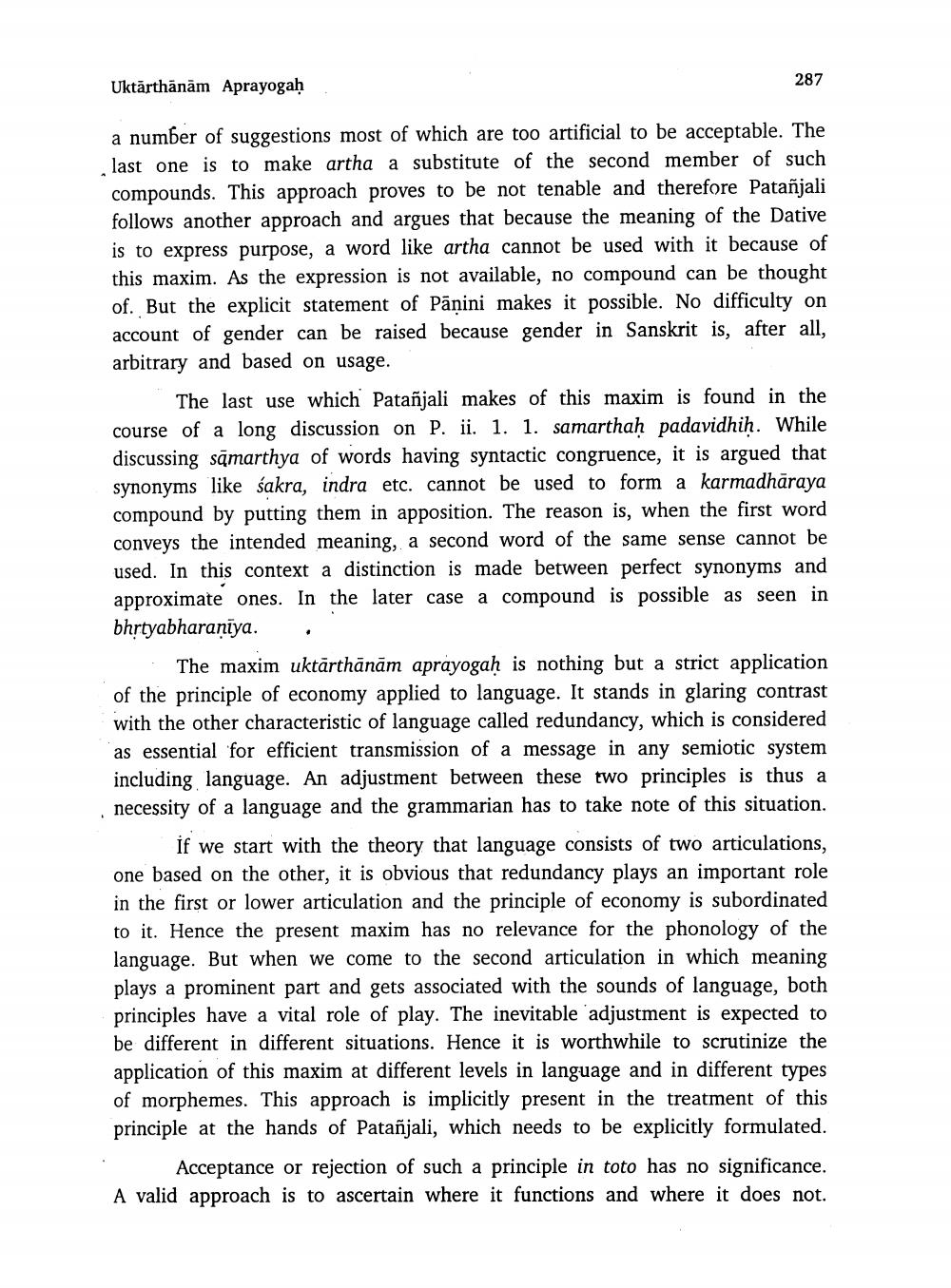________________
287
Uktärthānām Aprayogaḥ
a number of suggestions most of which are too artificial to be acceptable. The last one is to make artha a substitute of the second member of such compounds. This approach proves to be not tenable and therefore Patanjali follows another approach and argues that because the meaning of the Dative is to express purpose, a word like artha cannot be used with it because of this maxim. As the expression is not available, no compound can be thought of. But the explicit statement of Panini makes it possible. No difficulty on account of gender can be raised because gender in Sanskrit is, after all, arbitrary and based on usage.
The last use which Patanjali makes of this maxim is found in the course of a long discussion on P. ii. 1. 1. samarthaḥ padavidhiḥ. While discussing sämarthya of words having syntactic congruence, it is argued that synonyms like sakra, indra etc. cannot be used to form a karmadharaya compound by putting them in apposition. The reason is, when the first word conveys the intended meaning, a second word of the same sense cannot be used. In this context a distinction is made between perfect synonyms and approximate ones. In the later case a compound is possible as seen in bhṛtyabharaṇiya.
The maxim uktärthänäm aprayogah is nothing but a strict application of the principle of economy applied to language. It stands in glaring contrast with the other characteristic of language called redundancy, which is considered as essential for efficient transmission of a message in any semiotic system including language. An adjustment between these two principles is thus a necessity of a language and the grammarian has to take note of this situation.
If we start with the theory that language consists of two articulations, one based on the other, it is obvious that redundancy plays an important role in the first or lower articulation and the principle of economy is subordinated to it. Hence the present maxim has no relevance for the phonology of the language. But when we come to the second articulation in which meaning plays a prominent part and gets associated with the sounds of language, both principles have a vital role of play. The inevitable adjustment is expected to be different in different situations. Hence it is worthwhile to scrutinize the application of this maxim at different levels in language and in different types of morphemes. This approach is implicitly present in the treatment of this principle at the hands of Patañjali, which needs to be explicitly formulated.
Acceptance or rejection of such a principle in toto has no significance. A valid approach is to ascertain where it functions and where it does not.




